(Top 8) Early Signs Of Psoriatic Arthritis
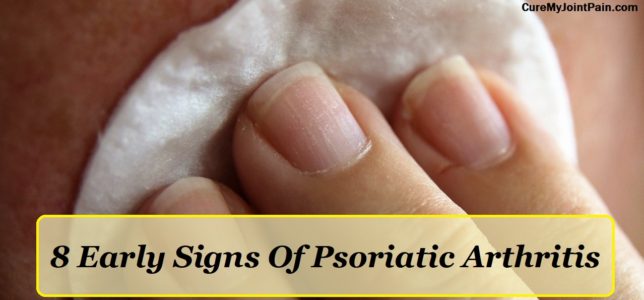
Has psoriatic arthritis just crossed your mind? Are you afraid it might be the cause of your symptoms?
Well, here are the top 8 early signs of psoriatic arthritis.
This can be a very tricky condition – because its symptoms are very different of the other forms of arthritis.
So if you think this could be your real diagnosis, the next lines will help you out. If it’s psoriatic arthritis behind your pain, you will definitely find your symptoms on the list.
#1 – Psoriasis
You surely know those red patches that appear in certain parts of your body. Well, they may be the first sign of psoriatic arthritis.
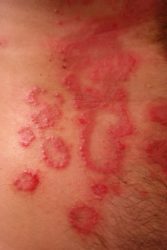
You can’t really have psoriatic arthritis without having psoriasis. That’s a fact. But surprisingly, less than 10% of people with this disease develop arthritis before developing psoriasis.
So is it possible? Yes – but:
- it’s very rare
- in most cases, psoriasis is the very first PsA symptom
However, having psoriasis doesn’t mean you will develop psoriatic arthritis too.
Only about 1/3 of people with psoriasis develop psoriatic arthritis at one point in their lives. So in most cases, psoriasis remains psoriasis.
Even so, arthritis can appear even 20 years after the psoriasis symptoms. It’s all a matter of luck, after all. You can’t do anything to prevent this condition.
#2 – Typical Swelling
Just like in most types of arthritis, inflammation is present. But there’s one difference – it doesn’t come in the same form.
If you have psoriatic arthritis, you will notice your fingers or toes get the shape of a sausage when inflamed.
This kind of inflammation doesn’t appear in any other forms of arthritis. That’s why it’s so easy to recognize.
Usually, this sausage swelling appears before the real joint pain:
- you toes or fingers simply get swollen
- there’s no feeling or any pain
Obviously, this swelling is extremely unpleasant – because your skin gets red and warm and moving around gets harder.
But even though it doesn’t hurt, it’s essential to treat the inflammation. Otherwise your fingers can get deformed or damaged.
#3 – Joint & Muscular Pain
If you’re dealing with psoriatic arthritis, you can expect a lot of muscular and tendon problems.
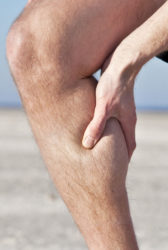
What’s interesting is that the legs are usually the most affected parts.
Have you heard of tendinitis? Well, it’s pretty common in psoriatic arthritis:
- your leg tendons get inflamed much easier than they should
- you may also experience muscular pain without much physical effort
Unfortunately, you can’t really control this symptom or do anything to prevent tendinitis.
It’s recommended to pay extra attention with exercising, but tendons can get swollen even without any physical activity.
In this case, anti-inflammatory remain the best solution.
#4 – Eye Infections
What many people don’t know is that psoriatic arthritis can also affect the eyes.
Just like with the joints – this condition can also produce inflammation in your eyes.
- at first it’s just a burning sensation or a minor pain
- it’s essential not to let the disease progress
- otherwise, it can cause conjunctivitis pretty often
- in worse cases, repeated infections can make your eyes drier
- at one point you can even develop glaucoma
So there’s no joke when it comes to the eyes.
Fortunately, eye pain or infections aren’t the very first sign of psoriatic arthritis.
They may appear from the beginning – but it’s usually the joint pain and the psoriatic rash first.
However – once you notice any eye problems, don’t let them untreated. They can cause you bigger problems than you think.
#5 – Stiffness
If you are an arthritis sufferer – you surely have a long history of morning stiffness. No matter what form you have, you must have experienced this symptom.
Well, sometimes stiffness appears long before the real joint pain. And in most cases, people never take it for real.
You can wake up every morning with stiff joints and think it’s normal. That especially if you’re an older person.
However, when your stiffness is caused by arthritis, it should last for about an hour.
If you move around, you should feel better, but the stiffness won’t go away completely.
On the other hand, if it lasts for just a few minutes, it’s surely not arthritis. It may be a bad sleeping position or the effects of a workout, but it’s surely not arthritis.
#6 – Nail Changes
This is a very clear sign of psoriatic arthritis, because it doesn’t appear in any other form of arthritis:
 your nails start getting dark spots
your nails start getting dark spots - they can start separating from the nailbed
Obviously, this doesn’t happen overnight – but you can see some gradual changes and damage in your nails.
In most cases, it’s the toe nails that change, but I’ve seen a lot of people with finger nail problems.
The nails look just like in fungal infections, but obviously – antifungal creams are absolutely useless.
So who would think at psoriatic arthritis just because of some damaged nails? Probably no one.
For this reason, if you already have psoriasis or a chronic joint pain, this might be an additional sign of your real diagnosis.
#7 – Lower Back Pain
If you also experienced back pain recently, you surely didn’t think about psoriatic arthritis. Am I right?
Well, this condition can lead to a complication called spondylitis. This is a disease itself, but having psoriatic arthritis increases the risk of getting spondylitis as well.
If you have spondylitis – you have inflammation in several parts of your back.
However, it’s between the vertebrae that bothers most of all.
As there’s inflammation, every time you make a small movement, you will be in pain.
What’s interesting is that the most affected vertebrae are the lower ones (because of their shape). That’s why the worst pain appears in your lower back.
#8 – Exhaustion
It’s normal to be tired when you’re sick, but what happens if you feel tired for weeks? That even though you rest a lot throughout the day.
Exhaustion is a typical symptom of psoriatic arthritis, and it’s even more pronounced than it other forms of arthritis.
The terrible pain, morning stiffness and inflammation are usually its causes. Sometimes even the prescribed medications can produce fatigue as a side effect.
It’s hard to diagnose this condition based only on this symptom, but it can be a helpful sign.
Most psoriatic arthritis patients deal with extreme exhaustion after daily activities – so it’s surely not a normal fatigue.
So Could It Be Psoriatic Arthritis?
If you have 3 or more than these symptoms, your diagnosis may not be just psoriasis.
In general, psoriatic arthritis comes with gradual joint pain and nail deformities. All the other symptoms I mentioned may or may not appear – but these 3 are almost always present.
Therefore, if you believe your psoriasis may be turning into a psoriatic arthritis, talk to your doctor.
This condition is more severe, but you can keep it under control if it’s diagnosed early. You may be lucky and not have psoriatic arthritis at all, but it’s better to be sure.
So what exact symptoms do you have? Do you think it’s psoriatic arthritis causing them? Let me know your answer in a comment and I will reach out to you with advice.
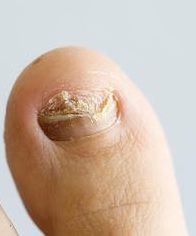 your nails start getting dark spots
your nails start getting dark spots 
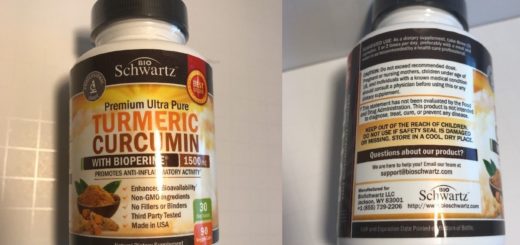
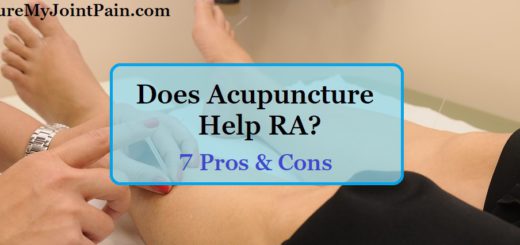

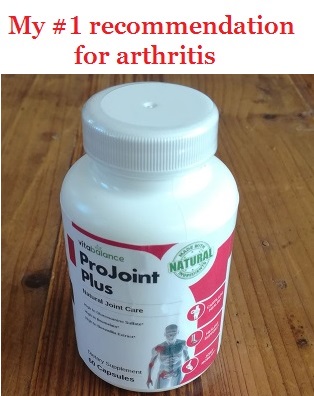
Hi Heather. I’ve got psoriasis for a very long time, maybe 15-20 years. I never had any joint problems of any type, but I lately started getting some back pain. At first I thought it was because of pregnancy but it continues even after giving birth. Now it’s been almost 2 months and my back is still hurting.
Do you think I could be developing psoriatic arthritis? My psoriasis was getting much better during pregnancy and it’s still not bothering me now. So could I be developing arthritis even if my psoriasis is going away?
I’m really desperate and I don’t know what to do. I made an appointment to my MD but he was only free next week and I can’t wait until then, I have to find out. I really hope you can help me because you seem to understand a lot of things I don’t. Thanks, Greta
Hey there Greta. From what you’re telling me, it’s not psoriatic arthritis but a form of chronic back pain that appeared because of pregnancy.
Now, I can’t tell for sure, but here are my arguments:
1. Joint pain is quite common in pregnancy, because hormones loosens your joints (but sometimes they do it too much). In some cases, it can also continue after pregnancy.
2. You didn’t mention other symptoms than your back pain. This makes me think you don’t have any swelling or nail changes, which are major symptoms of PA.
3. If your psoriasis is getting better, it’s very unlikely that you develop PA in the meantime. But pregnancy usually decreases psoriasis, so it will probably come back pretty soon.
So don’t worry too much and wait for your doctor’s opinion. But if you ask me, I don’t think it’s psoriatic arthritis but simply chronic pain. Hope this helps you.
I believe I have psoriatic arthritis. My reason:
Really rigid nails. I have to file them to get them smooth enough to paint.
I have reynaud in hands and feet
I have had really bad feet issues where I recd relief from injections in my heels.
I have always had very mild psoriasis on my hands and occasionally some patches on my legs.
Always exhausted
I went into my primary care doctor because my hands have been hurting off and on. This time a little more in my wrist this time and more intense in my knuckles. Doctor drew blood to test and going to refer me to a rheumatologist.
My concern is researching medication options all seem scary. Lots of side effects. I have enough issues. I’m not big on taking pharmaceuticals but my doctor says they have a new med that is really good and can even reverse the damage done. Nothing I look at says that. I cant find any natural way either. Everything says can help control the symptoms but disease itself will continue to progress resulting in increased pain and debilitation.
Hello Mechelle, sorry to hear about your symptoms. First of all, you might have psoriatic arthritis but it’s not sure yet. So my advice is to not overthink this matter until you have a clear diagnosis. And if it really turns out that you actually have this condition, don’t panic. Nowadays it’s a lot easier to live with it than it was in the past (even 10 years ago). That’s because the actual medication is getting better and better, so it controls the symptoms extremely well.
It’s true that a certain drug doesn’t have the same effects in everyone. It may work amazingly in some and have a minimal effect in others. But every drug is tested on thousands of patients before being released on the market. So those drugs that are actually released have an excellent effect in patients. And that’s available for side effects as well. No medication with common side effects is released on the market, no matter how good its actual effect was.
So when it comes to side effects, I really advise you not to worry about them. Every drug on the market has lots of side effects listed on its label. But in reality, those side effects appear in under 1% of its patients. And if you’re one of those 1% that experience side effects, you will probably experience only 1 side effects (from over 20 listed on its label).
I know many people read the label of certain drugs and they’re scared by the huge number of side effects listed there. But in reality, there are extremely few of them who ever experience any side effect. And if they really do, they probably experience one of the smallest ones (itching, rashes, stomach pain, headache, etc.). So if a drug caused the side effects listed on its label on a constant basis – trust me, it would be taken off the market immediately.
I hope this helped you calm down a bit.
Now let’s get to what you can do. If the diagnosis comes out as PsA, my first advice is to follow the treatment prescribed from your doctor. As I said, the actual side effects are far from as scary as they seem on the label. It’s true that medication will not cure the disease (since it’s an auto-immune problem and it doesn’t have a clear cause). But the medication can sometimes control the symptoms so well that you don’t even feel like you have the condition.
Additional to the prescribed treatment, you can also try the natural approach. My #1 recommendation for PsA are turmeric supplements. In PsA, your joints are very swollen on the inside and that’s what causes the pain and the stiffness. Turmeric is the best natural anti-inflammatory: it controls and reduce inflammation without causing digestive side effects (as NSAIDs do on the long term). That’s why turmeric is the best natural remedy for this condition, if you ask me.
Now – there are 2 ways to use turmeric: power or pills. The problem is that this herb has a very poor absorption – so most of it is eliminated straight away by our body. That’s why powder isn’t the best option when it comes to turmeric. On the other hand, certain supplements have a special formulation so that they increase the absorption with up to 2000% (they contain an ingredient called bioperine that is responsible for that).
That’s why I strongly recommend turmeric supplements combined with bioperine. If you want some ideas, here are the best products I used throughout the years.
Other than that – I recommend drinking lots of water everyday, in order to keep your joints hydrated. Try to avoid humidity and rainy weather, as those are known to increase flare-ups and pain. Also, when your joints feel very stiff, you can try placing a hot bottle onto them. This will reduce the stiffness a lot faster (it’s extremely useful in the mornings). And lastly, try to avoid processed foods and have a healthy lifestyle, eating plenty of Omega-3 and antioxidant-rich foods, fruits and vegetables.
You can also check this guide on treating PsA naturally, some tips might really help you already.
I really hope this helps you and please let me know when you get the results of your blood tests.